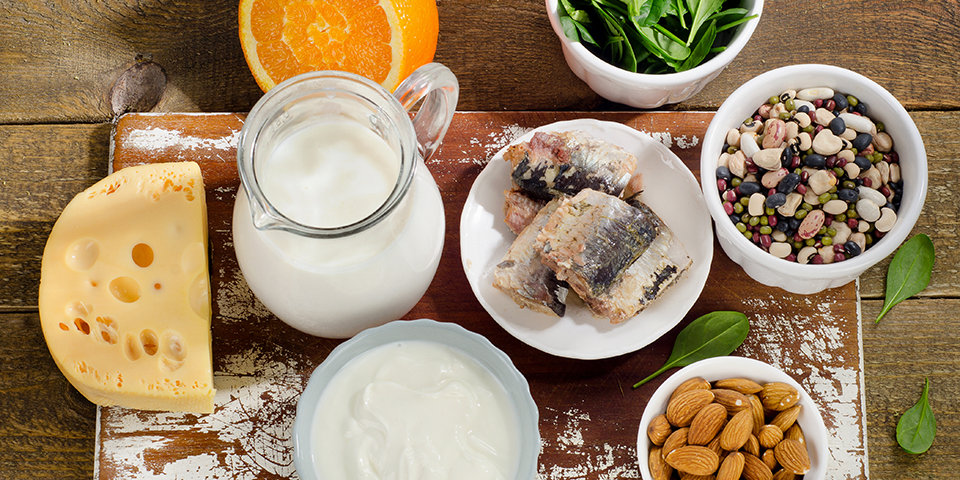Why do you need calcium?
Calcium is one of the key nutrients essential for healthy bone development. Peak bone mass is usually reached in the late teens. This means that by the time you have reached the age of 20, you have accumulated the maximum bone mass.
Other than its importance for strong bones, calcium is essential for the function of various organs within the body. If blood calcium levels fall, the body will compensate for this by pulling calcium out of bones. The body also excretes calcium daily. Therefore, to maintain the balance of calcium in the body, it is essential to have adequate calcium intake throughout life.
Why do you need Vitamin D?
Vitamin D is known as the ‘sunshine vitamin’ because the skin produces it in the presence of sunlight. It is very important because it helps the body utilise calcium. Indians may not produce enough Vitamin D because of our dark skin. In the urban scenario, women are hardly exposed to sunlight during the hours of 11 AM and 3 PM, when the sun is directly shining on us.
I am 30 years old. I would like to make sure that I don’t get calcium deficiency. What foods will help me get enough calcium?
All dairy foods like milk, curds and cheese are rich in calcium. You don’t even have to drink full-fat milk: skimmed milk contains the same quantity of calcium. Green leafy vegetables, okra and whole dried beans like rajma and channa contain a good amount of calcium.
However, in older people and in those people whose intake of dairy products is restricted, calcium supplementation may become necessary because they will not consume enough dietary calcium. Pregnant and breastfeeding women should make sure that they eat calcium rich foods.
Recently a few of my friends have been diagnosed as having Vitamin D deficiency. Should I be checked for the deficiency? How will I know if I have Vitamin D deficiency? I am 42 years old.
Interestingly, vitamin D deficiency is making waves as the latest medical problem around the world. Blood tests done in both developed and developing countries, including India, have shown that almost half of the men and women tested have Vitamin D deficiency.
Mild Vitamin D deficiency may not cause many symptoms. As the Vitamin D level in the body decreases beyond a certain level, muscle and bone pain can become apparent. The flat bones (your ribs, hip bone and the breast bone) can be painful under pressure.
If you do not go out much in the sunlight, or if you are a strict vegetarian and do not eat egg yolks or oil-rich fish, then you are at risk of developing Vitamin D deficiency. The best way to diagnose Vitamin D deficiency is by a blood test. However, this need not be checked routinely except if your doctor thinks that your symptoms are suggestive of low levels of Vitamin D.
Try to make sure that you, your husband and particularly your children get out in the sun for at least 30 minutes between 11 AM and 3 PM, at least twice a week (or 15 minutes 4 times a week). As Indians, we hate standing out under direct sunlight because of the heat but remember that the right amount of exposure is essential for maintaining your health.
I went for a regular health check-up. My doctor performed certain blood tests which included my blood level of Vitamin D. Now I have been diagnosed as having vitamin D deficiency. I am 49 years old. What kind of vitamin D is best?
The recommended form of vitamin D is vitamin D3 or cholecalciferol. This is the natural form of vitamin D that your body makes from sunlight. Commonly, Vitamin D deficiency is treated with tablets containing 60,000 international units of vitamin D2 or D3 orally once a week for six to eight weeks. The tablet should be taken early in the morning on an empty stomach. After the course is over, you may be placed on 800 units of vitamin D3 daily thereafter. You may also be placed on calcium tablets containing Vitamin D.

